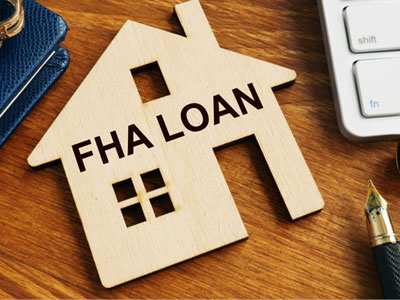If your house is financed with an FHA mortgage loan, you may wonder if you can sell the house while you’re still bound by your loan to your lender.
This is a valid concern for many borrowers, and understandably so, especially that nowadays employers often have the expectation that employees be open to or willing to relocate for work.
But you may also one day outgrow your home, or you may want to downsize. Regardless of your specific circumstances or your reasons for deciding to sell your home, having this option stay open to you should be normal.

So, is it possible to sell a home with an FHA loan? Or are you stuck with your home and have no other way to get out of this situation unless the loan period passes?
Yes, selling a house under FHA loan is possible. However, there are conditions to fulfill and you must observe the property flipping restrictions that apply when selling a home to a buyer who is also going to use an FHA-backed mortgage.
In this article, I’ll cover this issue in detail and the conditions you must fulfill to be able to sell your property while you still have an FHA loan associated with your property.
How to Sell a Home Under FHA Loan?

So, you’ve found yourself in one of the many scenarios where you simply can’t or won’t stay in your current home and you want to sell it to move away or more into a bigger home.
There are ways to sell your home even if you’re still paying off your FHA mortgage since there are no rules that would prohibit the sale of a property backed by an FHA mortgage. Which is normal since, after all, you are the owner.
But the lack of a restriction to sell doesn’t necessarily mean it’s easy to sell a house that has an FHA loan attached to it. Still, as a possibility, selling an FHA financed home is open for borrowers that find themselves needing to relocate or potentially needing to buy a different home elsewhere.
It’s also important to understand the nature of an FHA loan, which isn’t technically a loan since borrowers aren’t being lent money by the Federal Housing Authority, instead the FHA insures the mortgage lender against losses incurred in case a borrower defaults and can no longer make payments.
Therefore, this government backed loan grants more flexibility compared to conventional loans and it’s easier to qualify for an FHA loan.
A good credit score, a steady income, a down-payment of at least 3.5%, and manageable debt (important because of the debt-to-income ratio) are the standard requirements of an FHA loan that make this loan easier to qualify for compared to conventional financing.
Since you’re the owner of the property, you are allowed to sell it one way or another barring the anti-flipping restrictions instituted by the FHA for these types of mortgages, an aspect that I’ll also cover in this article.
In any event, you needn’t worry about being locked into an FHA loan. Of course, difficulties may arise such as not having enough equity in your home for a traditional sale and needing to do a short sale, or not finding a qualified buyer in markets that are on the slower side.
But since qualifying for an FHA loan is generally simpler than conventional loans and most Americans fall within the scoring range required by an FHA loan, it’s not impossible to find a buyer that can be approved by the lender to take over your mortgage, which brings us to the ways you can sell your home that’s tied to an FHA loan.
These are the ways you can sell your home with an FHA loan:
- Enabling the due-on-sale clause (which is essentially paying off your loan before the established loan term); or
- Using the loan assumption process (when a qualified third-party can assume your mortgage).
Let’s see how these work in practice and which option should you consider if you want to sell your home while still under an FHA loan.
1. Due-on-Sale Clause

Some FHA loans require that you pay off the outstanding balance of your loan upon selling the property plus any lender administrative fees.
This requirement is otherwise known as the due-on-sale clause or acceleration clause, which allows the sale of a property subject to an FHA loan to a third party with the permission of the lender, which will release you from the FHA loan.
If there’s a due-on-sale clause in your FHA loan, you will need to pay off the FHA loan to sell the home and unburden yourself from your financial obligation to the lender.
To do so, you’ll need to ask for a pay-off statement from the lender, which is an itemized list of the fees you must pay to close off your account.
The lender must also receive an estimated sell date on which they can base their fees. Once the sale is finalized, you must send the lender the outstanding balance.
In a nutshell, this is one way to sell your property associated with and FHA loan. Of course, this isn’t always required and there is one other way that you may sell a home subject to an FHA loan.
2. Loan Assumption

Unlike conventional loans, which are non-assumable by third parties, some FHA loans are assumable and a third party may essentially take over your mortgage loan payments releasing you from your obligation towards your lender.
In most cases, loan assumption is not possible since loans are somewhat tailored and tied to the individual (credit score, income, etc.), but some FHA loans do come with this perk.
The advantage of a loan assumption is that the buyer might get a better deal as opposed to taking out a new loan themselves. Loan assumption may allow them to get a lower mortgage rate, a below-market interest rate and potentially pay lower closing fees.
Of course, the lender must approve the buyer and the credit assumption process, and the buyer must meet the lender’s requirements.
A credit assumption paperwork and checklist must be submitted for review and approval. Once the lender approves the loan assumption, you will receive a release of liability and you will no longer have any further financial responsibility towards the lender.
These are the two ways in which you can still sell your home even though it’s subject to an FHA loan. Both methods come with their own set of approval and review processes that the lender will require.
Whichever method is applicable to you, in effect, you can get a release of liability either by paying off your loan or through loan assumption.
Home Sale Restriction Under FHA – Property Flipping
To discourage property-flipping (the buying and selling of property for a quick profit), there is a waiting period instituted to discourage this practice.
Therefore, properties subject to FHA loan that are being sold to a buyer that’s also using an FHA loan cannot be resold for 90 days following the seller’s date of acquisition.
If you meet these requirements, it’s entirely possible to sell a property that’s associated with an FHA loan and release yourself from all financial obligation to the lender.
If you’re selling your home through the loan assumption process, there are appraisal proceedings that must be conducted as per the FHA guidelines. The costs incurred by the appraisal are usually borne by the buyer.
When you’re selling a property under FHA, make sure to:
- Do some research regarding the local market value of your home;
- Let prospective buyers know you’re willing to consider offers that come with FHA mortgages or you’re willing to consider mortgage assumption as long as the buyer qualifies with your lender;
- Let prospective buyers know whether you’ll only consider pre-approved buyers or buyers that haven’t yet been approved for mortgages too.
These are simple things that can either open up your pool of prospective buyers or restrict it, depending on what your requirements are.
Once you’re released from your obligation and the sale of the property to a third-party closes, there’s no restriction for you to go on and buy another FHA financed home elsewhere if you qualify.
In Summary…
As you can see, selling a house tied to an FHA mortgage loan isn’t exactly smooth sailing, but it’s entirely possible if certain requirements are met.
Since loan assumption is a perk of some FHA loans that aren’t afforded with conventional loans, it’s one way you could release yourself from your obligation to the lender.
The possibility afforded by this type of loan becomes useful especially when, due to unforeseen circumstances at the time you’ve accessed the loan, you must move homes or relocate for work.
Therefore, if you’re in a position where you need to sell your property subject to an FHA loan, you can go the conventional route of the due-on-sale clause or, when possible, opt for the loan assumption option.
